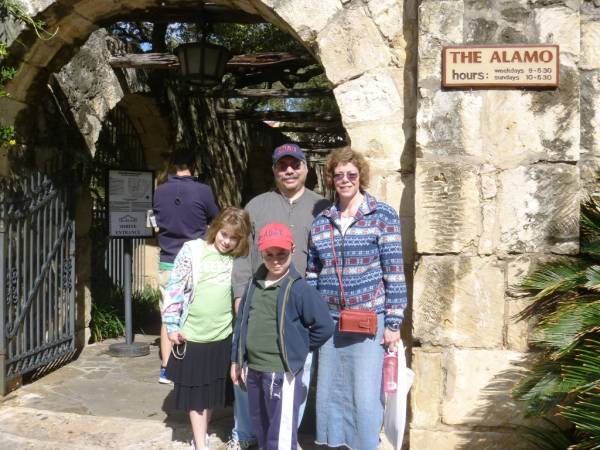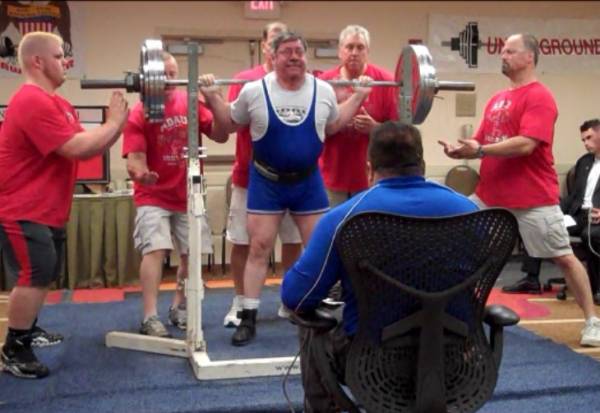In last week’s article, we discussed the powerlifters in the Kutin family, including 10-year-old world record holder “Supergirl” Naomi. But beyond their talents on the podium, the Kutins have a unique ability to balance their athletic pursuits with the many other aspects of family life.
For example, the Kutins are Orthodox Jews (Neshama and Ed actually met at synagogue), and they take their religious observance seriously – so seriously that they don’t attend meets or train on the Sabbath. When I asked Neshama if this was ever an obstacle, she replied, “I think we have to come back to our original premise of balance and choosing priorities…we’re passionate about our religious observance and our commitment to our God, and we have to honor that, just as He would honor us, and we have to honor our relationships with other human beings. I know that’s a little philosophical, but it’s what we believe.” That belief, for the Kutins, is what guides all of their activities, religious or athletic.
So how does that work out on a practical level? It’s quite simple, according to Neshama: they just make it work. “When I compete in the things I want to do, I get up at 2 or 3 and drive on Sunday, and that’s just what I do. If we have to leave at 9 o’clock at night because that’s when we can go, then we’ll drive four hours and get a hotel so we can do weigh-ins in the morning. It’s just how do you make it work. We don’t want to focus on stumbling blocks; we just want to see the creative way to make it work. I think those are also really valuable lessons…you just have to figure out how the puzzle goes together.”
Allowing for spontaneity while also sticking to priorities not only allows the Kutins to balance their athletic pursuits with the other demands of family life, but it also applies to athletic success. “Maybe one of the keys to really being successful at this is being flexible enough to know when to adapt. That’s true with your workout routine, too. If you have a sore leg day, and you haven’t really recovered after your rest day, you adapt and you don’t go so heavy. Maybe you do curls and a machine, rather than go to the free weights. You have to know when to alter your workout, too.”
I also asked Neshama how she and Ed balance that laid-back approach with the intensity of competition. Now that my own young daughter is old enough to compete in her activities, I find myself wondering, ‘Is competition healthy? Is it too intense? Will it be too discouraging if she doesn’t place?’ Neshama emphasized the importance of addressing each child’s individual needs when deciding whether or not to compete:
It depends on the kid. It depends on the temperament of the child; it depends on how hard or soft they are on themselves. So is competition good for kids? I think it is on multiple levels. I think that a powerlifting competition in particular, because you’re an individual competing, you have to go out and do your best and learn that your real competition is yourself. That’s a pretty valuable lesson to learn that really carries over to so many parts of your life. You really have to do the best for you, all the time.
Both of the Kutin parents are examples of this dedication. As I mentioned last week, Ed is also a competitive lifter, and although Neshama may not have set records on the podium, she has a success story of her own. During our conversation, she told me about her own decision to do what was best for herself and her family. “Five years ago, I was 270 pounds. I had really yo-yo dieted my entire life…I decided one morning when I was carrying the laundry up the stairs that enough was enough. I started to learn how to eat and take care of myself, and I lost about 50 pounds but I had flabby muscles, and didn’t really know what to do with them.”
For Mother’s Day, her family gave her a gym membership, and she took her transformation to a new level. “I realized I had a different beauty than I thought I had before. When you get lean and you have muscle definition in your body, that’s really beautiful…and the children know that it’s okay to look beautiful and have muscle, and not be defined by a role but by how you feel about yourself. That whole journey led me to help other people.” Neshama recently graduated from the Institute for Integrated Nutrition, and is now working as a Health Coach. Of course, her education has also helped in the home environment. “Just having the information for your family is incredibly valuable.”
In conclusion, I asked Neshama what advice she would have for families who want to balance an active lifestyle with the demands of everyday life. Here are the two tips she shared:

- The first thing you have to do is have priorities. In our family, the people are always the priorities. The things are not the priority. If you have to pick between washing the dishes and taking care of someone’s emotional needs, you take care of their emotional need first.
- Never forget to have fun. As adults sometimes we get bogged down in the seriousness of obligations, and whatever things we have to do as adults, and we forget to have fun. Working out is fun; being with your kids is fun; being with your spouse is fun.







